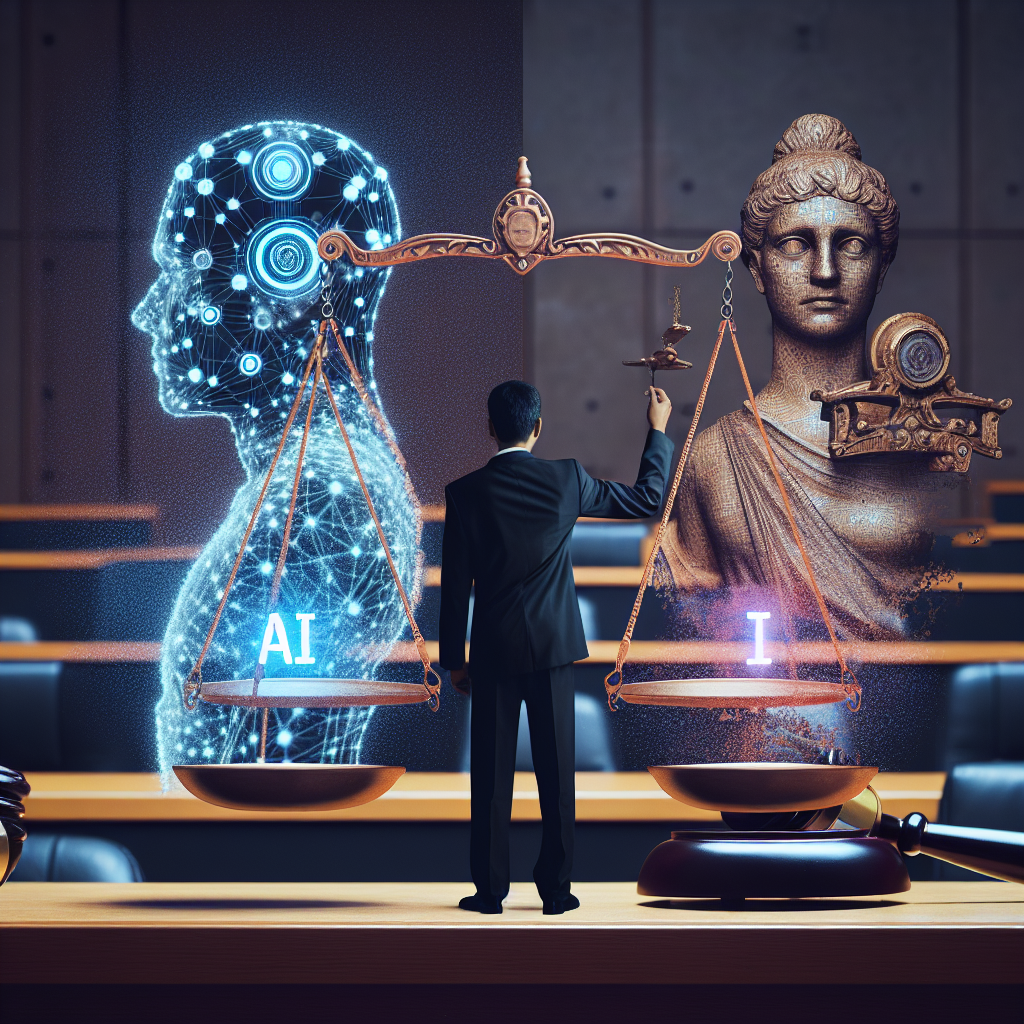Ethical Challenges in Implementing AI in Legal Practice
Artificial intelligence (AI) has made significant advancements in various industries, including the legal sector. AI technology is being used to streamline processes, increase efficiency, and provide valuable insights to legal professionals. However, the implementation of AI in legal practice also presents several ethical challenges that need to be addressed.
One of the primary ethical challenges in implementing AI in legal practice is the issue of bias. AI algorithms are trained on large datasets, which can sometimes contain biased or incomplete information. This can lead to AI systems making decisions that are unfair or discriminatory. For example, if an AI system is trained on historical data that reflects biases against certain groups, it may perpetuate these biases in its decision-making processes.
Another ethical challenge is the lack of transparency in AI systems. Many AI algorithms operate as “black boxes,” meaning that it is difficult for users to understand how the system arrived at a particular decision. This lack of transparency can make it challenging for legal professionals to trust AI systems and ensure that they are making ethical and just decisions.
Additionally, the use of AI in legal practice raises concerns about the potential loss of jobs for human lawyers. As AI technology becomes more advanced, there is a possibility that some legal tasks traditionally performed by human lawyers could be automated by AI systems. This could lead to job displacement and raise questions about the ethical implications of replacing human workers with AI technology.
Furthermore, the use of AI in legal practice raises questions about accountability and responsibility. If an AI system makes a mistake or produces an unjust outcome, who is ultimately responsible for that decision? Legal professionals may struggle to assign accountability in cases where AI systems are involved, which can complicate the legal and ethical implications of using AI in legal practice.
Despite these ethical challenges, there are also significant benefits to implementing AI in legal practice. AI technology can help legal professionals streamline workflows, increase productivity, and provide more accurate and efficient legal services to clients. By addressing the ethical challenges associated with AI implementation, legal professionals can harness the benefits of AI technology while ensuring that their practices remain ethical and just.
FAQs:
Q: How can legal professionals address bias in AI systems?
A: Legal professionals can address bias in AI systems by carefully selecting and curating training data to ensure that it is representative and unbiased. Additionally, implementing transparency measures in AI systems can help users understand how the system arrived at a particular decision and identify any biases that may be present.
Q: How can legal professionals ensure accountability in AI systems?
A: Legal professionals can ensure accountability in AI systems by clearly defining roles and responsibilities for using AI technology in legal practice. Establishing guidelines for oversight and review of AI systems can help ensure that legal professionals remain accountable for the decisions made by AI technology.
Q: What are some best practices for implementing AI in legal practice?
A: Some best practices for implementing AI in legal practice include conducting thorough due diligence on AI vendors, ensuring compliance with data privacy and security regulations, and providing training and education for legal professionals on how to use AI technology effectively and ethically.
Q: How can legal professionals address concerns about job displacement due to AI technology?
A: Legal professionals can address concerns about job displacement by focusing on the unique skills and expertise that human lawyers bring to the table, such as critical thinking, problem-solving, and client interaction. By leveraging AI technology to augment and enhance their work, legal professionals can position themselves as valuable partners in the legal process.

